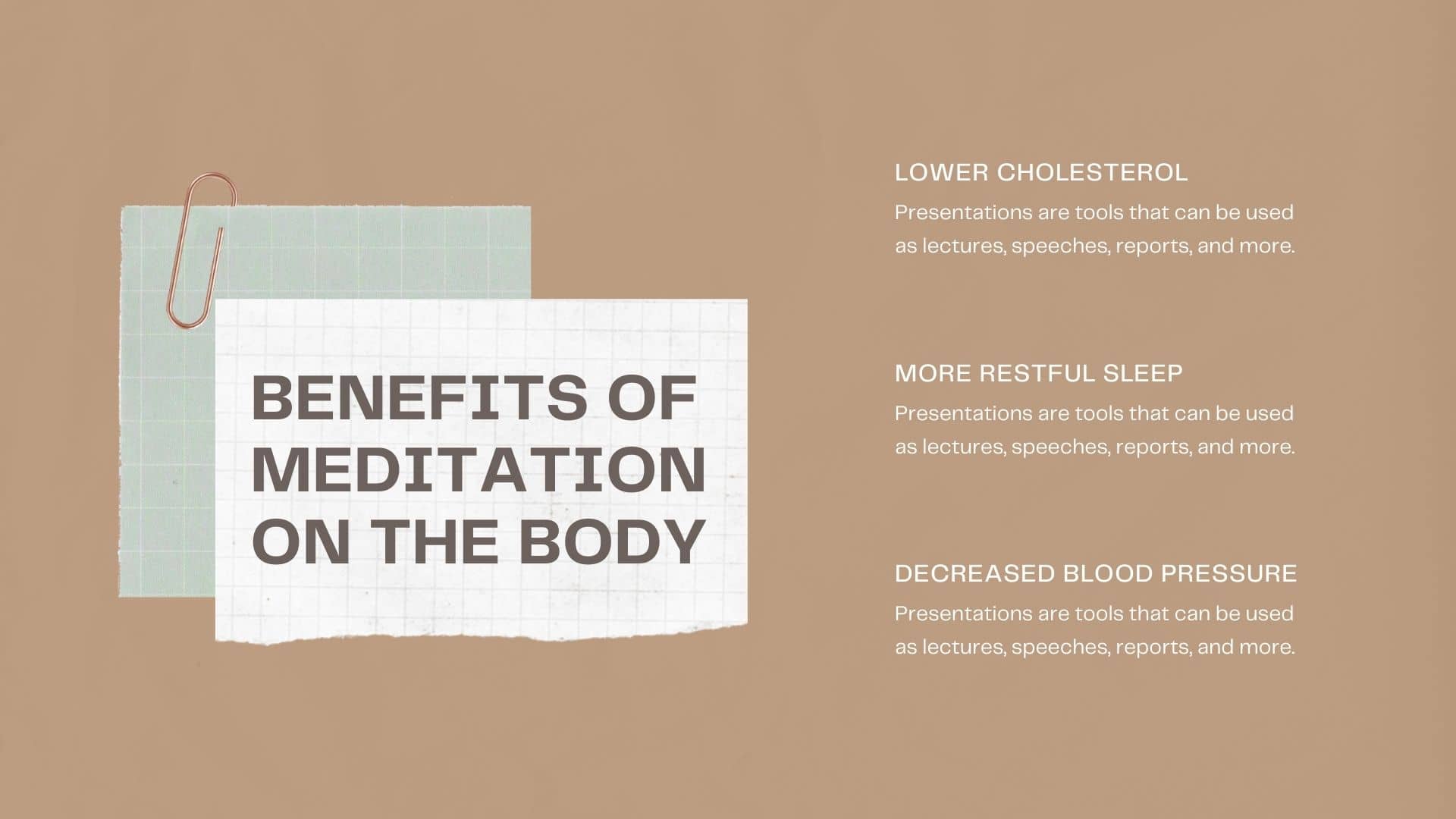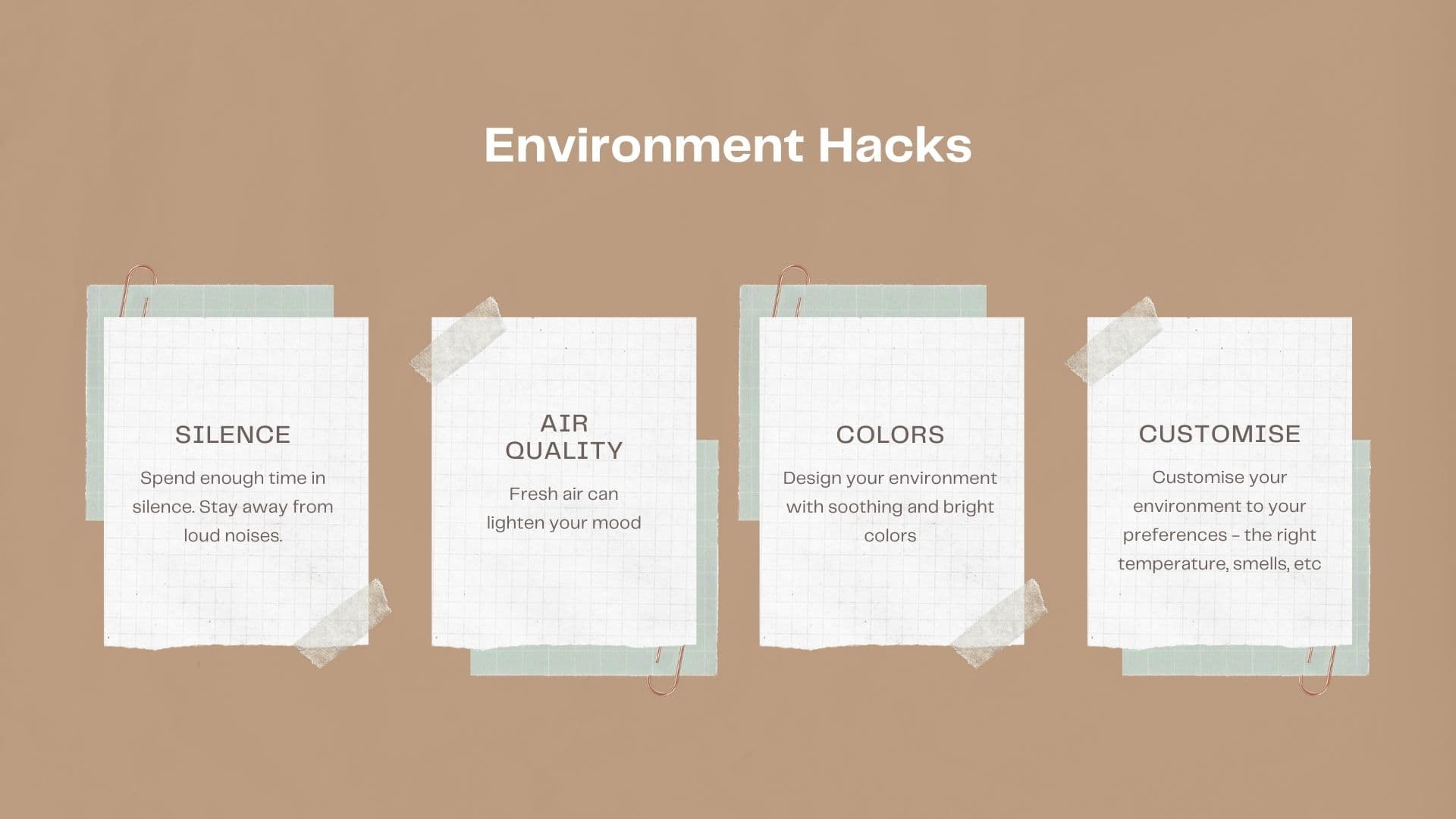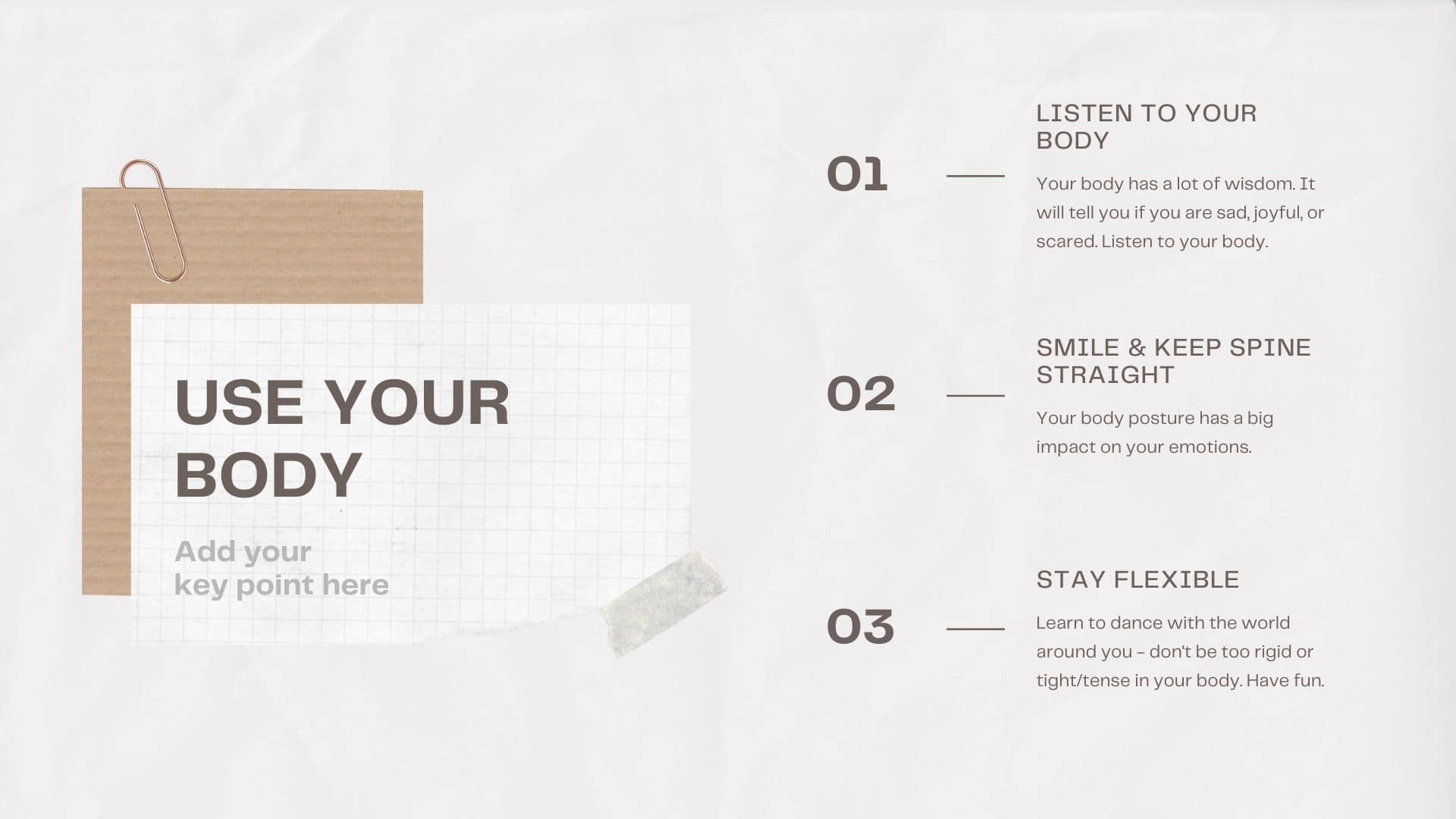Our emotions play a major role in determining the quality of our lives. Have you ever asked yourself why some people live a life full of joy and contentment while others struggle with anger and depression?
It all comes down to how you cope with life’s stressors and unexpected events. No one is immune to emotions like cynicism, anger, and disappointment. While some people go into a frightful or depressive state when faced with stress, others see the same situation as an opportunity for growth.
In this article, let me share 5 research-backed ways to befriend your emotions so that you can navigate through life with choice rather than just being a spectator. Make your emotions work for you, rather than the other way round.
1. Get Good Sleep
Sleeping is a biological function that is as necessary as eating. And when it comes to sleep, the quality does matter.
Sleep deprivation alters the way both your body and brain function. Studies reveal that individuals with chronic sleep deprivation are more susceptible to a host of psychological and physiological issues such as anxiety and depression, memory loss, decreased brain function, weakened immune system, diabetes, obesity, hypertension, lower fertility rates, among others.
How Does Sleep Affect the Brain?
Sleeping allows your brain and body to do more than rest; it allows them to clear out waste byproducts of daytime activities, balance hormones, and repair tissues. Since all those processes are vital for brain health, sleep deprivation has a tremendous effect on brain chemistry and emotions.
For example, neurons become slower at processing messages and transmitting signals, making you slower at processing information. This means that your reasoning abilities, reaction times, and decision-making skills suffer when you go for prolonged periods without sleep.
How Lack of Sleep Affects Your Emotions
Considering how sleep deprivation affects your brain chemistry, it does not come as a surprise that it affects your emotions too. It is the reason why most people tend to be irritable or more vulnerable to stress after a sleepless night, only to get back to normal after a good night’s sleep.
Researchers from the University of Pennsylvania conducted a study on this subject where they had the subjects sleep for only 4.5 hours each night for one week. Findings from the study revealed that the subjects reported experiencing mental exhaustion, higher stress levels, as well as increased feelings of sadness and irritability. When the volunteers resumed regular sleep, they reported experiencing a drastic improvement in their mood, supporting the notion that lack of sleep affects emotions.
According to the Journal of Sleep Research, people with sleep deprivation also tend to be less empathetic. That should not come as a surprise since you are less likely to be understanding when you are sad, irritable, or angry. This means that your lack of sleep will affect how you connect with others.
Studies also reveal that insomnia is one of the core symptoms of depression. 20% of people diagnosed with insomnia end up developing major depression. However, scientists are still trying to determine which comes first between stress and insomnia. For example, it is hard to find sleep when you lose your job. Conversely, the stress is more likely to develop into depression the longer your sleep deprivation continues.

Address Sleep Issues
Considering that lack of sleep has a direct link to higher levels of stress, developing healthier sleeping habits can help you curb your sleep-stress relationship. Therefore, even though your lack of sleep might be due to life’s stressors, you should try to put yourself in an environment that allows you to drift off to sleep without a lot of hassle.
Start with making your bedroom a sleep sanctuary. Consider the following tips:
Comfortable Bedding 🛏
For starters, get a comfortable mattress. A good mattress does not have dips or lumps, supports your preferred sleeping style, and does not overheat. Bedding made of linen or cotton is an excellent option since it is breathable, thus preventing overheating.
Keep Your Room Cool 🆒
Cool rooms are more comfortable to sleep in. Consider keeping your bedroom’s temperatures between 16-19 degrees celcius.
Keep the Room Dark
The circadian rhythm – your sleep wake cycle – is controlled by light exposure. Light tells your brain that it is time to be up, while darkness lets your brain know that it is time to rest, thus resulting in the release of sleep hormones such as melatonin. Therefore, by keeping your bedroom dark, you will be allowing your body to follow that rhythm. Use heavy drapes or blackout curtains to keep outside light from entering the room.
Do not Use Screens in Your Bedroom
In the matter of keeping your room dark, you should also avoid using electronic devices when going to sleep. Unfortunately, most people are guilty of this habit. The blue light that electronic devices emit has the same effect as sunlight, thereby inhibiting your brain from releasing melatonin. If you are suffering from chronic insomnia, avoid using any devices at least two hours before bedtime. Read a book instead.
Get Regular Exercise
The fatigue that comes with physical exertion puts your body in a state where it desires to sleep. This is why physically active people are less prone to insomnia.
Good sleep hygiene reduces your susceptibility to stress. Therefore, make sure to get at least seven hours of sleep every night. You will find yourself having better control over your emotions.
2. Language – Thoughts and Words
“Sticks and stones may break my bones, but words cannot hurt me.” While that saying sounds good when using it against naysayers, you must be very careful about how you interpret it.
Words are powerful. In fact, one could argue that words, and thus language, is the tool that made humans the most powerful species on the planet. Alone, a human is a puny creature that cannot stand its ground against most animals. However, as a team, it is a completely different ball game. Our ability to communicate effectively is what allows us to strategize and use the environment to our advantage.
When used appropriately, words can engage, encourage, and persuade. In the same light, however, words can also dismiss, discourage, dissuade and cause damage.
Using words, therefore, you can plant the seeds of success or failure in your mind or that of another. The words and the language you use also end up defining you, as they reveal your thoughts and attitude.

What are Words?
“We translate experience into language and mistake the language as the actual experience.” – Joseph O’Connor.
Words are labels or descriptions you give to your emotions or feelings. They allow you to express what you are feeling inside so that you can have a better understanding of your circumstances. However, just because you feel a particular way about something does not mean that that’s the reality; it is simply your perception of the situation, or better yet, your assumption.
As such, words can also be described as your biased perceptions of both your internal and external environments. These perceptions or interpretations are biased since they are based on your history, values, beliefs, thoughts, rules, and more.
Therefore, words are simply psychological anchors for emotions. For example, by saying that you are afraid of something, you will fear whenever you come across that situation. Perhaps a past confrontation went bad, leaving you with a fear of confrontations.
However, that is no way to live life, as confrontations are part of everyday life. The problem lies in using certain unhelpful or disempowering words to describe your emotions.
Changing Your Language Patterns
Using positive language is linked to experiencing an uplift in emotions. In one study, the researchers had a group of volunteers write down at least three positive things about their day for three months. By the end of that period, they all revealed feeling happier and better about their lives.
If simply jotting down positive words makes you feel better, it means that you should start becoming conscious of your thoughts and the language you use daily. You will also need to identify how those affect your emotions and thus, your decisions, choices, and actions. It is only when you have a clear understanding of how your language patterns affect you that you will be motivated to make the necessary changes.
Consider the following examples:
“I’m angry” vs “I’m disappointed”
Simply admitting that you are angry will trigger your body to display the necessary neuromuscular response to match that emotion, thus ruining your mood. However, when you say that you are disappointed, your brain will interpret that you are not happy about the situation while not being particularly bothered by it. This means that you will not feel the same impact on your emotions, allowing you to handle the situation more effectively.
“I can’t” vs “What if I could”
Saying that you can’t do something is extremely dangerous, as you will be admitting that the challenge at hand is beyond your abilities. While there are challenges that you might not be equipped to handle, admitting defeat signals your subconscious that it is okay to quit.
However, saying, “what if I could” is extremely empowering, as it is a refusal to accept defeat.
Your words influence your experience of reality. They influence your perceptions, thoughts, evaluations, beliefs, attitude, actions, patterns, behavior, body language, and more. This means that your language influences not only your emotions but also your actions and results. Choose your words wisely.
“Words are, of course, the most powerful drug used by mankind.” – Rudyard Kipling.
3. Breathing/Presence/Mindfulness
How many times have you said to yourself, “I should never have said that or I should not have done that?” This happens to everyone, as you simply cannot live without emotions. However, as mentioned, there is a difference between how we perceive things and what they really are.
Therefore, to avoid knee-jerk emotional reactions, you must learn how to calm yourself down in the heat of the moment so you can analyze the emotional-trigger logically.
One of the best ways of retaining control of your emotions at all times is by practising mindfulness.
Mindfulness can be defined as ‘observing your emotions as they are with openness, curiosity, acceptance, and non-judgement.’
This means that you must first accept that you are susceptible to emotions. Next, you must accept what you are feeling at that moment without judging yourself. Once you do that, you will be in a better position to reframe yourself into a more logical and positive state of mind.

Tools for Mindfulness
Taking control of your emotions, especially in charged moments, can be incredibly difficult. However, it is imperative that you do so to avoid making regrettable choices or decisions. The following tools will prove useful in that quest:
Conscious Breathing
When you find yourself in an emotionally charged state, immediately turn your focus to your breathing. You will find that it is shallow since you are tensed-up, which is a response to stress.
By breathing, therefore, you will loosen yourself up and let go of that stress reaction in the process. You do not have to change how you breathe; simply breathe in slowly and deeply until you feel relaxed.
The benefit of focusing on your breathing is that it allows you to lower your heart rate and release tension from the body. It should be your go-to tool when looking to regulate your emotions in an instant.
Meditation
Regular meditation allows you to take control of your emotions and thus, yourself. Unlike breathing, meditation is not a short-term solution; it requires you to practice it regularly. The biggest advantage meditating has over-breathing is that it puts you in a blissful state where you observe your emotions without even having to think about it.
Meditation, therefore, allows you to escape the reactivity prison and become a conscious creator instead. The beauty of meditation is that you can perform it anywhere, anytime. As such, it will give you a tremendous psychological edge when going into a tense situation.
If you have never meditated before, here is a simple meditation routine to get you started. Consider performing it at least twice a day for five minutes each:

- Find a comfortable sitting position
- Sit with your back and neck straight
- Relax all your facial muscles including eyes, mouth, and jaw
- Close your eyes
- Pay attention to all the sounds you e.g. the AC, birds chirping, or cars going by
- Gently shift your attention to your breath but do not attempt to alter it
- Notice how your breath rises and falls
If your thoughts or emotions keep coming up, do not try to avoid them, as that is not the objective. The aim of meditation is to become mindful; to be present at the moment; to observe your thoughts and emotions, not to wallow in them.
- Keep focusing on your breath
- Allow your emotions and thoughts to be
That’s it! You have meditated! While it sounds simple, it is crucial that you keep focus on your breath while observing any emotions and thoughts without judgment.
In the beginning stages, you might find it difficult. This is because it is not easy to observe one’s own emotions without having the urge to judge them. What’s more, your brain might trick you into thinking that you are being careless or losing your self-awareness by not judging every little thing you experience.
Nevertheless, to achieve internal peace and, ironically, to heighten your self-awareness, you must learn to let go of the need to judge your emotions by letting them be. For instance, if a situation makes you experience emotions of anger, simply observe it without doing anything.
The more you practice mindfulness, the less susceptible you will be to feel overwhelmed by your emotions.
4. Environment
Owing to the lack of large physical size, early humans were often on the menu of larger carnivores such as sabre-toothed tigers. As such, we evolved to be sensitive to our environments, as one never knew where a predator could be lurking.
Safety and security, therefore, are the primary attributes we look for in an environment so that we can be comfortable. In addition to physical comfort, we also want it to be psychologically comfortable to keep our stress levels low.
Since your surroundings affect your mood, the environment where you live or work plays a big role in your emotions and thus, your mood and productivity.
In today’s world, however, we have different preferences when it comes to the ideal environment. These differences result from factors such as personality, social status, education, cultural influences, professional or personal circumstances, and more.

Common Stressors in Environments
Nonetheless, while we may react differently to environments, there are certain elements in any environment that can stress almost everyone. They include:
- Loud noises
- Low ceilings
- Poor air quality
- Glare
- Unpleasant scents
- Uncomfortable temperatures
If you work or live in an environment with such stressors, you will always find yourself on edge. There is a reason monks choose to live in serene environments.
Therefore, if you want to maintain control over your emotions, it is important to ensure that your immediate environment is not one of the causes of stress.
4. Body – Gestures / Postures / Exercising
Feeling moody? Try to smile. Believe it or not, it works. In one study, researchers had the subjects adopt a facial expression that mimicked a smile then asked them to fill a questionnaire. Findings revealed that the participants experienced higher levels of amusement than those that attempted other expressions.
The facial feedback hypothesis says that the state of your facial muscles has a direct relationship with the emotions you feel. Variations of facial muscle contractions not only communicate what an individual is feeling to others but also to themselves.

Therefore, the state of your facial expressions has a direct influence on your mood.
Try this experiment: alter your expression to mimic that associated with displeasure or anger. Do that by creating tension in the area between your eyebrows. It should result in your eyebrows being pulled down and a wrinkle forming on your forehead.
How do you feel? A furrowed brow is a signal to your brain that you are displeased, which is why it is impossible to experience feelings associated with happiness when you are in that state.
The takeaway? Adopting a facial expression or a body posture associated with a particular emotion allows you to experience feelings associated with that emotion. Therefore, being mindful of your body language is a key element when it comes to influencing your emotions.
Conclusion
Emotions are the spark of lives. Think about how dull life would be if you did not experience any emotions. However, as much as they can create beautiful experiences, they can also be the cause for stress if you allow them to overwhelm you.
By making use of what I have shared in this article, you can befriend your emotions, learn from them, and make them work in your favour rather than against you.

Trackbacks/Pingbacks